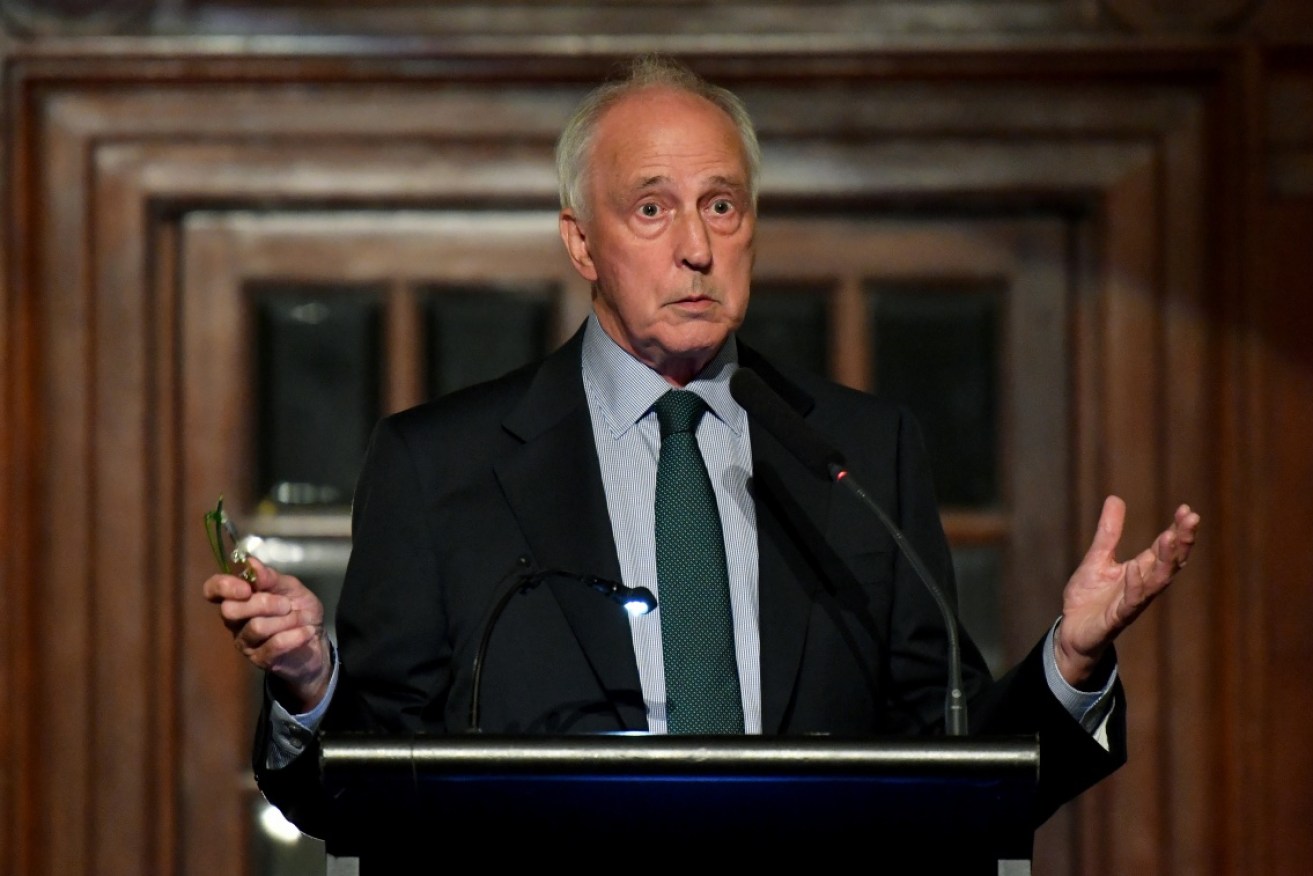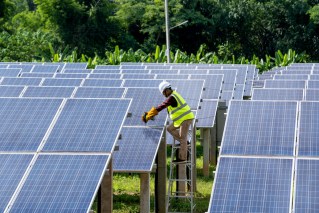Paul Keating offers his answer to the problem of wage growth


Paul Keating has called for the super guarantee to be raised immediately. Photo: AAP
Businesses should be forced to pay their employees more in super rather than raising their take-home pay as an answer to the problem of flat wage growth, former Labor prime minister Paul Keating has argued.
In an opinion article in The Australian Financial Review on Wednesday, Mr Keating said persistently flat wage growth was becoming “deeply challenging” because a recent pick-up in labour productivity seemed to have made no difference to how much Australian workers were getting paid.
Mr Keating, who was a long-time treasurer in the Hawke government before he became PM, acknowledged workers were struggling to negotiate pay rises with their employers.
But he rejected a recent solution proposed by the union movement that would radically reform the way employees can collectively bargain with employers while at the same time changing the way the Fair Work Commission determines wage disputes.
“Such a change would represent a dramatic and retrograde shift from current arrangements,” said Mr Keating, whose legacy would be overwritten by the union movement’s proposal.
Instead, he said businesses should be forced to pay 12 per cent of their employees’ pay into their superannuation funds – a solution he said would “share productivity growth with the workforce, but not distort the current wages system or its future operation”.
Currently the ‘super guarantee’ (SG) requires businesses to pay 9.5 per cent of their employees’ salary into a superannuation fund. That money is locked away until the employee reaches the ages of between 55 and 60 (depending when you were born), when you can start to access your super so long as you are retired.
You can access your super without any limits after you turn 65, even if you are still working.
The idea is that this will take considerable pressure off the age pension, and allow people to adequately fund their retirements.
Experts generally agree that the SG must be at least 12 per cent to provide an adequate income in retirement. Currently the SG is due to reach 12 per cent in 2025.
But Mr Keating suggested the government should fast track the increase to 12 per cent, to take advantage of an uptick in labour productivity.
He said this would not put a dent in wages, because SG increases generally only come out of potential wage increases, and currently people are not getting real wage increases.
“The Treasury would of course blanch at the budget cost of an increase in the SG, claiming the 15 per cent contributions tax would be well below the average marginal tax on the income growth of the workforce,” Mr Keating wrote in the AFR.
“But on this occasion they would be wrong. Wrong, because in the current environment and in such instance, a payment under the SG would not be replacing a wage increase. Wages are jammed after all.”
The Hawke and Keating Labor governments of 1983 to 1996 were responsible both for reforming industrial relations law to restrict enterprise bargaining, and for introducing compulsory superannuation.
The Coalition was initially against compulsory superannuation, and the current government has pushed back the schedule to raise the SG to 12 per cent a number of times.
Business is unlikely to support an immediate rise in the SG as it would increase their costs.








